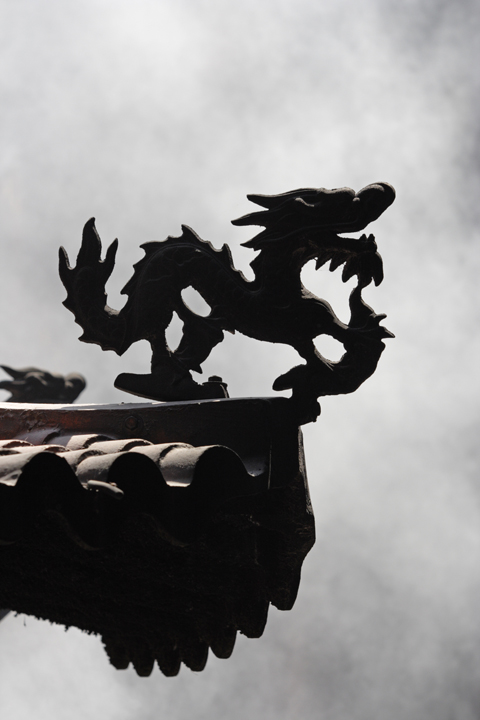
Defusing the Myths about China
Doing business in Asia is unique, and those newer to this environment should heed some key principles. On a recent trip to China, I had a chance to put these key ideas into practice.
My industry is moving to China – at least big parts of my industry. And with my customers flying up and back, and my products being sent to and fro, it was high time that I made my first trip there.
Beware of Communists
Having a proclivity toward listening, I asked everybody for information before my departure. Some had recent experience in Asia, some didn’t. But everyone had heard something, and didn’t hesitate to repeat it. “Don’t take any pictures outdoors in China – you might accidentally get a communist military secret, and be accused of spying,” one person advised. They’d just heard this on the radio. Another said, “Stick to rice, and don’t drink the water – or you’ll get sick.” Another said the cuisine was great, he ate everything. It went on and on. I remembered it all, noted it all. As I arrived, first in Hong Kong, then to the mainland, then on to Korea, I kept listening and observing.
Avoid Generalities
There was a bit of truth in most of what I had heard. But no one comment, no one generality seemed to hold true everywhere. In my two week trip, I only saw part of southern China, Hong Kong and Seoul, Korea. And now I have a generality for you. Don’t believe any generality about China or Asia (except this one). It’s far too complex a place, and it is changing way too fast for any one generality.
I had a great time. With five key objectives for my business, I made incredible progress on all of them. One objective was written off as impractical. Several others are alive and well, and in development. Without making the trip and doing the preparation, I would still be wondering about how to get started in Asia. Instead, I have 27 pages of typewritten notes and made three proposals to my board. That’s progress.
An Ace in the Hole
Of course, I had an ace in the hole. Through the Alliance of Chief Executives, I asked for guidance, and one guy recommended another guy he knew, who recommended that I speak to a third guy, who referred me to a consultant in China (Della Lo, now with ChinaBoundBiz in Toronto, CA), who became my guide. She was excellent. Talk about the power of networking! She guided me, set up appointments, learned my business and spoke, wrote and read Cantonese, Mandarin, or English as needed. She kept me on course, on schedule and out of trouble. Call that lesson #1: Find people who can help you get what you need in Asia. Test out their capabilities and knowledge base, so you have evidence backing up what they are telling you.
But still, none of it would have happened had I not been there. I know my objectives perfectly, so the combination of me being there, with a guide that helped me was incredibly powerful. My sense for people and places still worked well, validated my in-country guide. Lesson #2: You’ve got to go there to really understand it.
Having listened to a lot of people before I left wasn’t enough. I had more questions each day as I traveled, and observed more. I even began detecting generalities that people in one province had about another province, or about other Asian countries, or about the people in Hong Kong or Shanghai. Lesson #3: Listen to them all, but note when you hear a predisposition. Advisors are often wrong too, or have opinions based on dated knowledge.
Relationships
The experts like to tell you that in Asia, contacts and relationships – or guanxi as they call it, are everything. Like they don’t matter everywhere? I can’t think of any place I’ve ever done business where relationships don’t matter – not if you want to do serious business. Lesson #4: Relationships do matter everywhere, and in China especially. And the more remote the other party (China would be remote for most Americans), the more you rely on those relationships to keep the business on track. So do work hard at relationships. Do know what is appropriate in their culture. Do try and appreciate their history and acknowledge them as a country and as a people. Yes, I am actually telling you to be a good, interested human being. Sorry if you already knew that.
Neither Asia nor China is any one thing. Asia is complex and diverse. To be successful in such a complex environment, you must study it, understand the subtleties that present themselves, then make good solid decisions based on real knowledge. What a surprise.
Takeaways:
- Find an in-country guide and consultant.
- You’ve got to travel there to make it happen.
- Listen to advice from all quarters about China, but check it out yourself.
- Form and nurture relationships within China.
Tags: culture and morale, emotional intelligence, global management, interpersonal acumen
 Robert Sher is founding principal of CEO to CEO, a consulting firm of former chief executives that improves the leadership infrastructure of midsized companies seeking to accelerate their performance. He was chief executive of Bentley Publishing Group from 1984 to 2006 and steered the firm to become a leading player in its industry (decorative art publishing).
Robert Sher is founding principal of CEO to CEO, a consulting firm of former chief executives that improves the leadership infrastructure of midsized companies seeking to accelerate their performance. He was chief executive of Bentley Publishing Group from 1984 to 2006 and steered the firm to become a leading player in its industry (decorative art publishing).